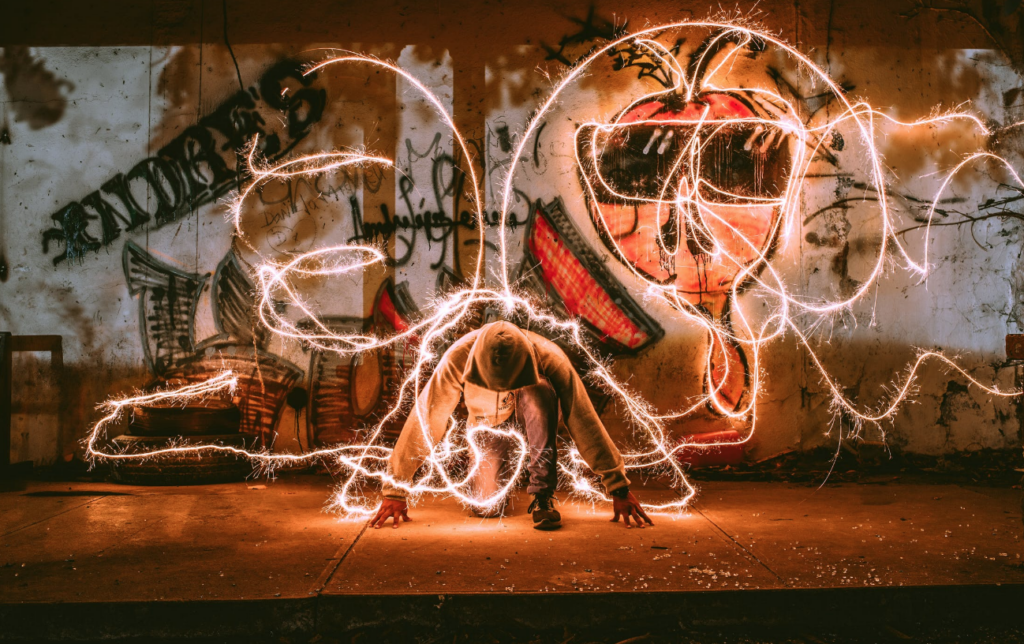
Fear is, in all likelihood, the single most complex human emotion. Our fears can keep us up at night, but they can also be the only thing that keeps us alive. They can save us, strangle us, liberate us or even destroy us. Like fire, fear can be intoxicating and even addictive and for sound reasons.
We understand on some primal level we NEED fear—that fear DOES keep us alive and often safe. Fear keeps us within society’s guidelines, since most of us (wisely) are afraid of prison.
We check food expiration dates, pay our taxes, and avoid accepting loans from anyone with ‘THE’ as a middle name, (Vinnie the Fish, Marty the Clown, Jimmy the Snake etc.).
Fear is to thank for many of these sound decisions.
Alas, fear can also be the ‘tame’ tiger who’s our best cuddle buddy for ten years…until it tries to eat our face off. Ask Siegfried and Roy. Thus, fear’s dichotomous and volatile nature can’t help but draw us in like those proverbial (and suicidal) moths to the flame.
A couple years back, I wrote a post about how shame is the beating heart of great fiction. But if shame is the heart, what is the BLOOD? The life force of truly magnificent stories?
My POV? Fear.
Fear IS Fiction
Some folks reading this might have a knee-jerk response of, ‘Oh, I don’t like horror.’ Yet, I want to point out ALL genres hinge on fear. What is a good romance without the fear of never being loved, never finding love, or finding then losing love?
Fear is what adds the breathless expectation, the race to the end turning pages as quickly as we can because we are AFRAID the couple we’re rooting for won’t get their act together before it’s too late.
Whether an MC is overthrowing an evil wizard, stopping a drug cartel, or opening that cupcake shop despite all her family’s nasty barbs and undermining, FEAR is the lifeblood that gives the story LIFE. The larger the fear (and more universal) the more resonant the story.
A Fearful Genre
All fiction has its place. Some fiction is purely fun and escape, and the world needs more fun and feel-good. Certain books are simply a holodeck. These stories allow us a safe space to get away.
Many books offer mental respite from the mundanities of life, a haven where we can regroup after dealing with the overwhelming pressures of being an adult (kids, laundry, bills, car repairs).
These stories serve as a place of rest and we all could use more of that!
But that isn’t all fiction.
Many writers (myself included) desire to go far deeper with our fiction, explore wounds and human issues. We’re compelled to poke and prod at larger social dilemmas.
Stories offer a mechanism where we can ‘safely’ expose that which is diseased and ALSO show these cultural cancers can be eradicated.
Speculative fiction is an excellent outlet for easing our anxiety and that of the reader’s. It’s a genre that is HOT, HOT, HOT due to a plethora of factors including but not limited to: geopolitical threats, global media, living in a surveillance society, loss of privacy, government intrusion, and Facebook.

Then, there’s the constant exposure to every variety of threat (terrorism, politics, pestilence, artificial intelligence, robot girlfriends, Alexa, Siri, Amazon Prime, global warming, and…the Kardashians *shudders*).
I know writers are told not to write for the market, which is partial advice. We don’t ONLY write speculative stories because this genre is exploding in popularity.
If you hate these kinds of stories, by all means, avoid them PLEASE. But, writing is also a BUSINESS and to ignore a genre that is expanding faster than elastic waistbands at an All-You-Can-Eat Chinese buffet is plain dumb.
This genre is blowing up for sound reasons. Speculative fiction (horror is included in this) offers a myriad of ways to help us mere humans face all the stuff we fear the most. It helps us COPE.

Since fear practically saturates every area of our lives, readers are gravitating more and more to books that allow them to put a face to the fear and then kick its metaphorical @$$.
We can’t do much of anything about escalating tensions with the Middle East or the Fukishima reactors that continue to pollute the oceans.
And, since we DO NOT LIKE feeling powerless, these stories hand us back some form of agency and ease our terrors.
What is Speculative Fiction?
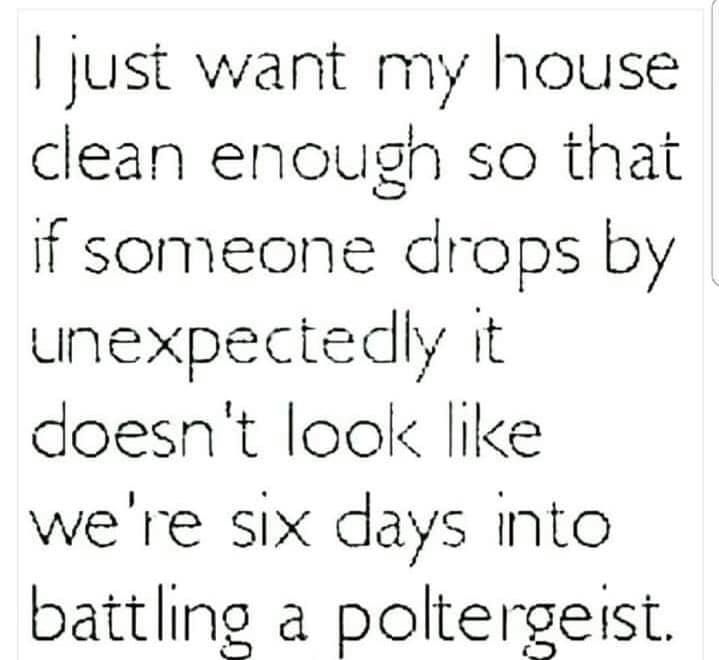
Speculative fiction is an umbrella term publishing uses to describe narrative fiction with supernatural or futuristic elements. This includes but it not necessarily limited to fantasy, science fiction, horror, utopian, dystopian, alternate history, apocalyptic fiction, post-apocalyptic fiction.
Basically, all the weird stuff.
(And forgive me because today we are using seriously broad strokes.)
But what makes the difference between the laughable 1950s science fiction matinees and the long-forgotten pulp fiction versus the works of Philip K.Dick?
What makes The Road literature even though it’s a post-apocalyptic novella? Why is Heart-Shaped Box or Wool so deeply disturbing and simultaneously resonant?
Why do star-packed big-budget films like Jupiter Ascending fizzle? Yet Blade Runner is a science fiction staple worthy of being remade for the newest generations to enjoy?
Plot & FEAR

It’s easy to dismiss speculative fiction as escapist fluff and some of it is. But, when we look to the great speculative fiction, we see the authors are disguising explosive social commentary within narrative so it can be viewed and experienced behind the safety-glass/containment field of story.
By using story, we writers place the reader into this world then (hopefully) generate empathy that is impossible to create any other way. I’ve seen the movie I, Robot countless times and I bawl EVERY time during this scene.
This is me every….single…time…I watch that scene *BAWLS*

Stepford Wives
Was a commentary on the women’s liberation movement. It explored the very real fear of the unknown at the time. Men had no idea how to cope with the new roles and never-before-held feminine powers that had been unleashed.
Before, men could just burn those mouthy wenches as witches. But give them equal rights? *sets down kindling* So much for that.
#Awkward
Animal Farm
Was a treatise on socialism and the dangers of groupthink. The peril that comes with handing over too much power to those who claim to have noble and benevolent intentions without asking the hard questions.
Brave New World
Was Huxley’s stab at a culture propelled by temporary highs, unlimited choices and instant gratification while rejecting that which endured—love, family, marriage—because that which lasted required time, sacrifice and work.
He showed us an eerily accurate picture of what society could become if we were not vigilant…and is now probably rolling in his grave.
*Makes note to write story about Huxley haunting Instagram*
Fahrenheit 451
Was an explication on revisionist history, a culture grounded in fleeting emotion and the superficial. How invaluable books are to the bedrock of a society and how important it is that we FEEL uncomfortable. That being UNCOMFORTABLE is vastly important.
It was a warning, I’m afraid, we’ve failed to heed.
We’re living in a society where we can block, delete and take down content because ‘we find it offensive.’ Speakers are being banned from universities. Or, when they show, they’re met with protests and pepper spray simply because they represent opposition.
In far too many instances (for my tastes at least), any disagreement equals hate speech. Universities label books with trigger warnings or pull them altogether so as not to ‘offend’ anyone.
That, my friends, is exactly what happened in the world of Fahrenheit 451. This goal to make everyone ‘comfortable’ directly led to the implosion of libraries and the university and educational system and the creation of the Firemen who burned all the books (because books made people ‘feel bad’).
I’d suggest reading Fahrenheit 451 with its four walls of television and nonstop entertainment. The seashells plugged into everyone’s ears to pump in more entertainment. I’d suggest it, but…*shivers*
…we might already be living it.
*sobs*
Do Androids Dream of Electric Sheep?
Was Philip K. Dick’s commentary on artificial intelligence and just because we can play God, should we? What sort of moral implications are involved? These are issues we are now facing for real, that are no longer fiction and we are being tasked with the tough questions.
Is it wise to create and sell sex robots that come with a ‘frigid’ setting? What happens when we extend the logic of this? Blade Runner. We get Blade Runner. Also a bizarre escalation/reinvention of the previously mentioned Stepford Wives.
All these great science breakthroughs that float across our newsfeed are now fertile ground for new and possibly even better stories that prod the science with ethical dilemmas.
We (authors) show the world it’s upside down and maybe even ways to right it.
I believe that the great speculative fiction writers have always been the conscience of culture, the voice that whispers things like, ‘Just because we can, doesn’t mean we should.’ Or, ‘This really is a big deal and can go ugly really easily.’
Horror does a lot of that as well. Good horror writers tap into the subconscious angst and give it a face. What happens when society is allowed to continue to devalue human life?
When mobs are handed permission to call the shots? Let’s chat about this after watching The Purge…which ignited enough public frenzy to warrant being made into a USA Network television series.
***Or just hop on Twitter to watch it in real life.
To Make it BIGGER, Make it Smaller
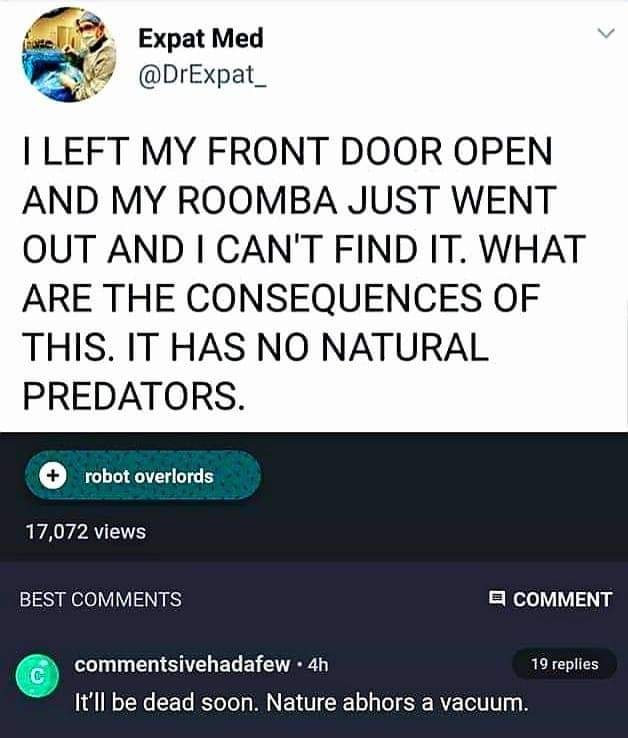
When we care about everything, we care about nothing. Additionally, the human mind can’t truly grasp the loss of a billion lives. It doesn’t resonate because it can’t compute.
Thus the great spec-fic plots make the big small. We tell a small story of one person or a group of people as it plays out on the far larger stage. World War Z anyone?
This is why so many Hollywood movies about asteroids hitting the planet fizzle while The Road simply guts us.
Not All Big Stories are Big
Sometimes speculative fiction isn’t addressing something big, rather it dives into the intimate and deeply personal. Heart-Shaped Box is about a vengeful ghost out to destroy an aging rock star and anyone he loves.
While the supernatural elements are terrifying, what is so beautiful and moving about this story is how the malevolent ghost forces the MCs to face and conquer inner demons they would have been happy to bury…if not running for their lives.
The human story is what elevates this from a forgettable scary book into a work that prods at the deep dark places of the characters (and by extension the reader).
Character & FEAR
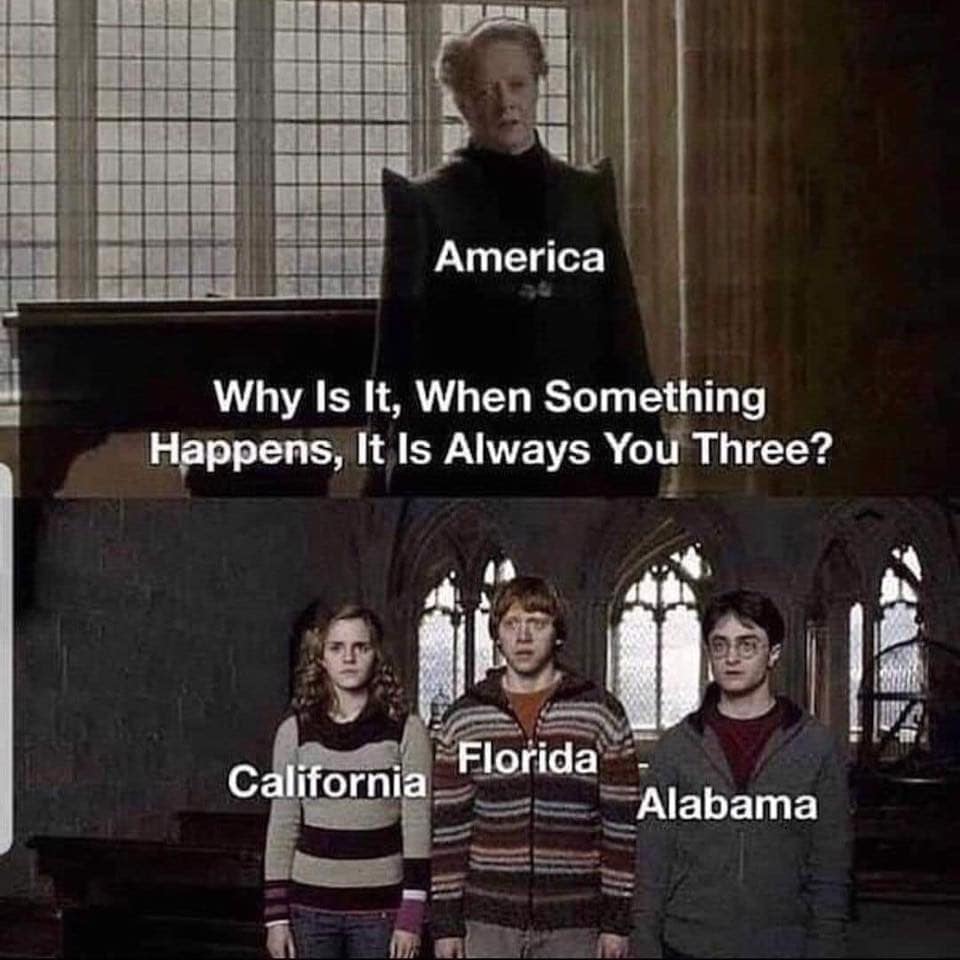
Writing speculative fiction is really tough. It has a lot in common with literary fiction. In FACT, spec-fic in general (INCLUDING HORROR) makes up a very large percentage of what’s viewed as ‘great literature.’ Fahrenheit 451, Brave New World, 1984, Frankenstein, Dracula, The Haunting of Hill House, everything written by Edgar Alan Poe EVER and I could go on.
But won’t 😉 .
Alas, because speculative fiction shares so much familial DNA with literary fiction, it can suffer from similar degenerative diseases. Speculative fiction can easily turn preachy or rely too much on low-hanging fruit that wrecks great stories.
Horror might swing the literal ax too much, the ‘fear factor’ relying too much on shocking an audience that hasn’t been shocked since middle school.
Dystopian, utopian, science fiction, can become an assembly line of derivative drones. In a similar vein, literary fiction can pummel us with pontification, and sedate us with sophistry. Ah, but so can speculative fiction.
*channels Edie Brickell*
Shove me in the shallow water before I get too deep…
World-building is backdrop and can never substitute for story. Yet, too many writers fixate on the element of storytelling at expense of the story. Spec-fic is tough. I swear it is the souffle of fiction. If we aren’t careful and look away one second?
Yeah.
Plot of course matters. We need a core story problem to drive the story. Ah, but characters are vastly important and I’d even posit they’re even more important…kind of like literary fiction.
#Hmmmm.
We must develop multi-dimensional characters with flaws and problems to set on this adventure because gizmos, gadgets, spaceships, magic, chainsaws, gore and ghosts, big words and deep thoughts alone are not enough.
Don’t make a bigger asteroid…create a better story.
Story is what is going to rattle the reader’s cage, not the two-ton spider or a warrior alien race like the Klingons but NOT because they’re Cling-Ons—a race of genetically engineered clones grown from needy exes imprisoned on a space colony after violating one too many intergalactic restraining orders…
I take that back.
I’d totally read that story.
Where was I? Yeah. So, more blood or teeth or guts won’t scare us, won’t rattle us, and sure as heck won’t change us.
In a world where we are overwhelmed with doom and gloom, where any debate on-line easily devolves into ranting, I think spec-fic is more important than ever in human history. Story is the place where the armor goes off and the heart is exposed and then able to be changed, fixed, remolded, and softened.
What Are Your Thoughts?
Do you love horror? Dystopian? Science fiction? What are your favorites? I LOVE HEARING FROM YOU! What makes spec-fic great? Or fall flat? What are your pet peeves?
If you really want to deep-dive how to write these incredible genres that are HOT, HOT, HOT, please check out the ON DEMAND CLASSES by #1 best-selling author Maria Grace that you can enjoy from the comfort of HOME.
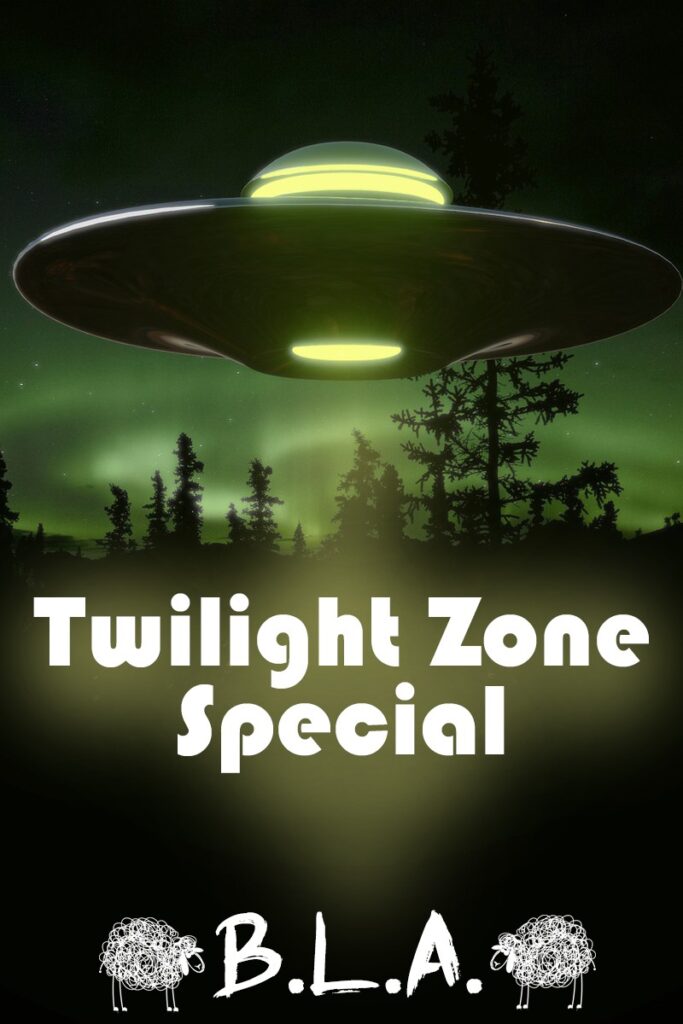
More Than Crop Circles: Intro to Science (and Speculative) Fiction $45
Speculative Fiction World-Building $45
Populating Planet X: Character-Building for Science (and Speculative) Fiction $45
Twilight Zone Special: All THREE Classes $99 (that’s over TEN hours of training). Makes it $33 a class for those who can’t math 😉 .
I’ve also extended the holiday sales on all classes listed below to January 15th. Get them before they’re deleted.
And to prove it and show my love, for the month of JANUARY, everyone who leaves a comment I will put your name in a hat. If you comment and link back to my blog on your blog, you get your name in the hat twice. What do you win? The unvarnished truth from yours truly.
I will pick a winner once a month and it will be a critique of the first 20 pages (5K words) of your novel, or your query letter, or your synopsis (5 pages or fewer).
***I will announce December’s winner once I feel better. I’m recovering from bronchial pneumonia.
In the meantime, PLEASE treat yourself to a class! We have a TON of classes that we will be deleting or putting into cold storage come mid-January (I’m extending the sales to January 15th since I haven’t been around to tell you about them during the holidays).
These will no longer be available after January 15th, so STOCK UP while you can.
NEW Year, New YOU! ROAR into the TWENTIES!
ON DEMAND Sales!
HIGHLY RECOMMEND–> On Demand: How to Write Deep POV
By #1 Best Selling Author Maria Grace! Normally $55 now $30
ON DEMAND Dark Arts: New Year’s SPECIAL Building Your Villain
Usually $55 and until January 15th is only $30.
Three hours of psychopaths, sociopaths, narcissists, pathology and how that applies to writing.
It is like the Behavioral Analysis Unit for Authors. Tres FUN! Villains are some of the most enduring characters in literature. Why not add your own legends to the list?
I’m also offering:
The Art of Character NEW YEAR’S SPECIAL: Writing Characters for a SERIES ON DEMAND
Normally $65 and NOW only $40.
FOUR hours of training on characters on how to develop characters that that can go the distance.
Bring on the Binge: How to Plot and Write a Series (ON DEMAND).
Normally $65 and NOW only $40. Pairs PERFECTLY with The Art of Character for Series.
ON DEMAND! New Year’s Sale! Story Master: From Dream to DONE
Usually $55, now ONLY $30.
This class is to train you how to plot whether you’re a plotter, a pantser or a mix of both. It’s also a crash course in creating dimensional characters.
On Demand: Beyond Bulletproof Barbie
Usually $55 and now only $25.
This is a THREE-HOUR class on guns, knives, weapons, fighting, law enforcement (from local cops to international espionage) and more. Everything you need to build a bad@$$—male OR female—and get the details CORRECT.
Spilling the New Year’s Tea: On Demand Blogging for Authors
Usually $75 and now only $40.
Get prepped and ready for the new year, new you, new blog.
Bite-Sized Fiction: How to Plot the Novella
Use New20 for $20 off
Popular On Demand Classes
Need some help with platform and branding?
Branding: WHEN YOUR NAME ALONE Can Sell (ON DEMAND)
Use brand10 for $10 off.
For the complete list, go to the OnDemand Section.
***I will add more classes, especially from Maria Grace, in the coming days, as I recover.
.








14 comments
2 pings
Skip to comment form
“Spec-fic is tough. I swear it is the souffle of fiction.” Ooo… that is such a good analogy. Light and fluffy does not equal easy.
Great post, I so appreciate you mixing humor into a difficult subject. I am not a fan of horror, or perhaps more accurately, films full of gruesome gore and blood. I loved so many of those books and the Twilight zone also.
Author
The best horror isn’t gory at all, though. It’s why I love psychological thrillers. All in your head.
Like the movie “The Others”. Had to turn the light on watching that one.
Thanks for that, I will keep it in mind.
Author
The scariest Twilight Zone episode was the one with the ventriloquist dummy. No gore or guts. All that is low-hanging fruit for the talentless hack. True horror is actually VERY difficult to write. It’s why Hitchcock was such GENIUS. And THANKS!
Crap! I need to have a talk with my rabbits. They were the ones who got me writing again. I decided it was a good idea while cleaning cages, and tend to ask myself questions while cleaning, when I hit a will with any part of a story. Those bunnies know all kinds of freaky stuff. I’m not a trend follower, but it appears I tapped into at least two of them without realizing it. I wrote a “Regency Historical” with a strong fantasy element. The title is “Heart of a Star” and features a large star sapphire on the cover. I saw a news story about millenials and their love of astrology very early one morning last week. Taking a risk and writing the story I really wanted might actually pay off.
To look at it from the other direction: horror is so universal, Jane Austin was writing it.
Any pre-modern study of a woman looking to marry was her staking her life on being able to guess if the man would turn out to be a brute, a fool, or something worse — since the lady had no escape if she guessed wrong. (Hasn’t entirely changed…)
Every story with any oomph has something worth fearing in it. Over horror is great, especially if the story makes it relatable too. But “quieter” stories run on the same fuel, about whatever the characters Want and whatever might take that away. And that certainly can include starting that cupcake shop despite the family’s doubts.
Author
NICE OBSERVATION! *fist bump*
I was weaned on the horror of the 70s–King (the elder), Ira Levin, Frank de Felitta, etc.–and it will always be, ironically, my comfort read. Though I write psychological fiction where the danger isn’t supernatural, I’ve always felt that the worst monsters are men (and a few women) (and some children). Cujo is terrifying because the zombie state is wrought by a virus. (Bacterium?) The hotel in The Shining might’ve been haunted, or the whole thing might’ve been a metaphor for the alcoholic family. The scariest dangers are human.
Author
Girl must be something in the zeitgeist! I was just recommending one of your books the other day! *mind…blown* Yes, the most terrifying monsters are us.
Thank you so much for your analysis and regard for spec fic. I started writing fantasy at a time when me an my fellow fantasy writers felt like we lived in a literary ghetto. Thank God for J.K. Rowling for exploding the ghetto walls. A little bit of that old disregard for speculative fiction still haunts me, so it is a delight to read it’s praise from an author I respect. Thank you!
I enjoyed your post. ??
I see I am not supposed to use emojis on WordPress. The 2 question marks are actually smiley emojis.
[…] readers can helps us understand how and what to write. Kristen Lamb explores why humans crave stories that scare them, Bonnie Randall encourages writers to embrace the bleak in their stories, and Helen Taylor delves […]
[…] via FEAR: Why Humans Crave Stories That Scare Them — Kristen Lamb […]